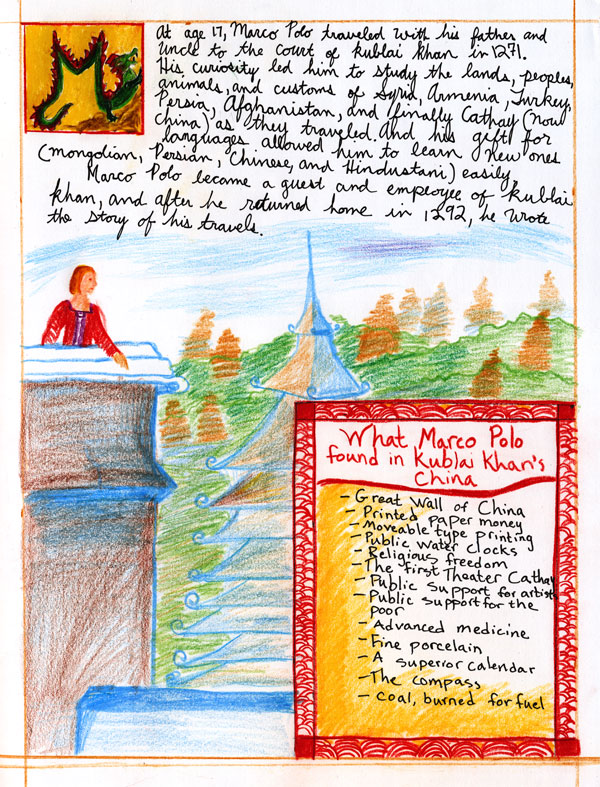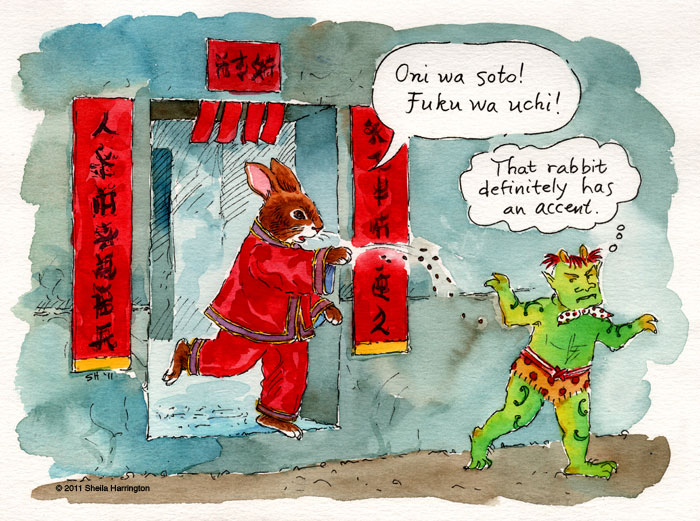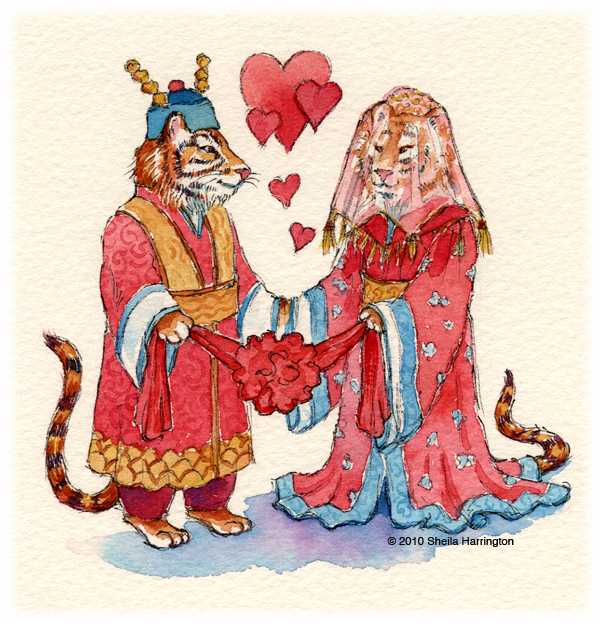I hope you have paid your debts, hung your lucky couplets on the door, swept your house clean of ill-fortune, and decked it and yourself in red, because today is the first day of Chinese New Year celebrations, and you have fifteen days of festivities ahead of you. Our own culinary interpretation of this holiday: tonight I will make crispy tofu and stir-fried broccoli and ginger but will order spicy eggplant and vegetarian dumplings from Mr. Chen’s Organic Chinese Restaurant around the corner. We’ve already prepared our New Year fortunes—more on that later.
2012 is the Year of the Dragon, and if you were born in a Dragon year, you are (according to Mr. Chen’s placemats) eccentric, and your life complex. You have a very passionate nature and abundant health. Marry a Monkey or Rat late in life, and avoid the Dog!
Today is also the birthday of painter Édouard Manet (1832-1883), who was himself born in the Year of the Dragon. I hope that, in addition to his other qualities, he had a sense of humor.




